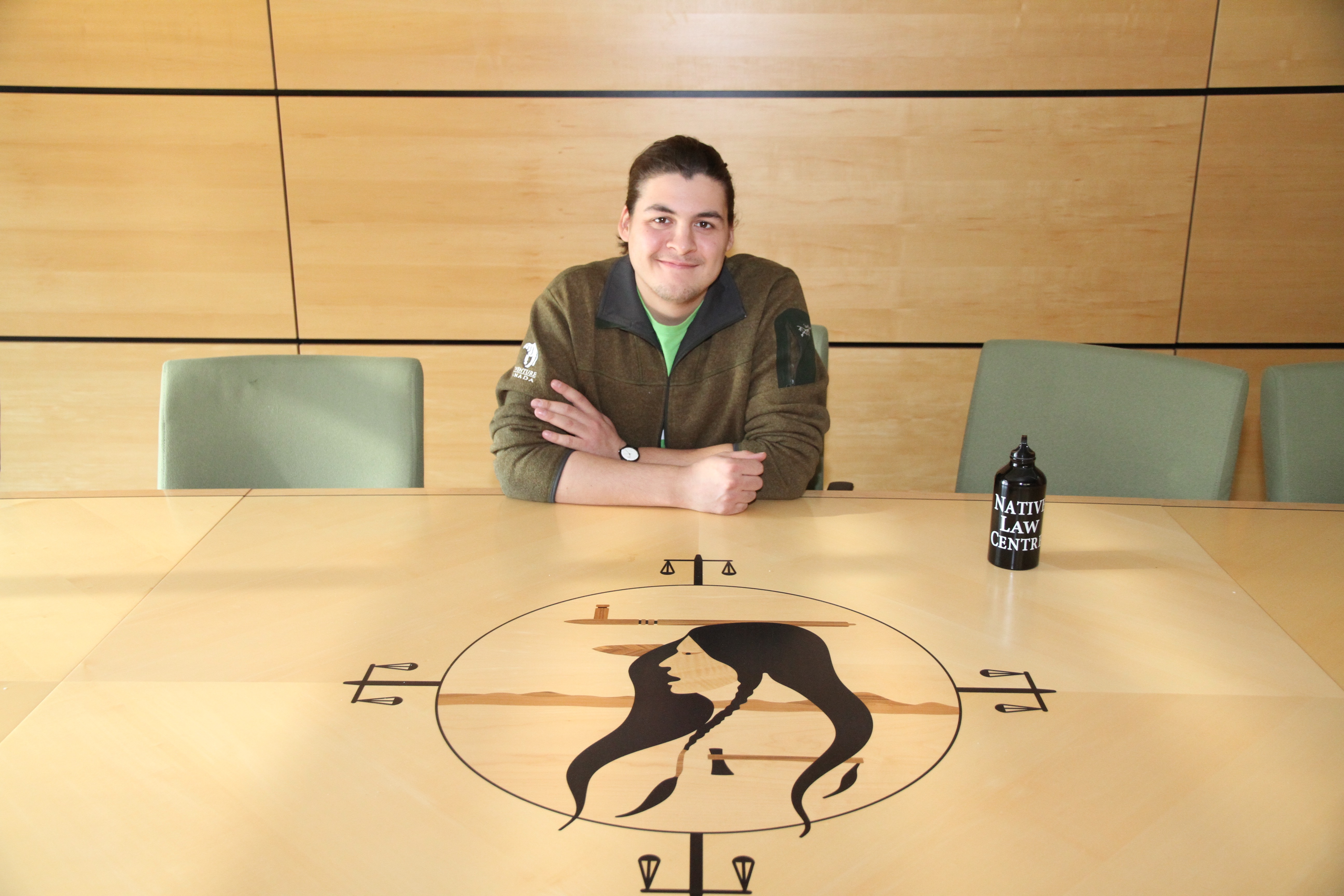
Inuit students happy to have JD program
Born in Nunavut, 300 kilometres from the Arctic Circle, Robert Comeau never dreamed of going to law school one day, never mind having the opportunity right in his own community.
By James ShewagaBut that all changed two years ago when the College of Law at the University of Saskatchewan (USask) announced it was bringing law school to the north through the Nunavut Law Program.
“Honestly, when I saw it advertised, I couldn’t believe it,” said Comeau, one of 23 students who are in the second year of the four-year Nunavut Law Program based in the capital of Iqaluit. “I thought it was made for me. I had just finished my bachelor’s degree in history and political science in April (of 2017) at Carleton, and this law program was going to start in September, and it was in my community. So, it was perfect for me.
“I never imagined going to law school, other than my mom saying you should be a lawyer because you like to negotiate everything. And to be able to go to law school in my own community, that is something I never imagined would happen.”
Established via a partnership between the USask College of Law, Nunavut Arctic College and the Government of Nunavut, it’s the first time in more than a decade that law programming has been offered in the territory. Students who complete the program will be awarded a Juris Doctor (JD) law degree, joining the other USask graduates of the class of 2021.
“It’s important that Indigenous populations in remote and rural areas have access to legal education, and we’re delighted to run the program,” said Dean of the College of Law Martin Phillipson.
The Nunavut program incorporates Inuit legal traditions and teachings from local Elders and other experts in Inuit law, with visiting professors from universities across the country taking turns travelling north to teach the bulk of the course load.
“The professors that we have, have been pretty wonderful,” said Comeau. “They’ve acknowledged that they are in a Nunavut community and they are cognizant of this and are very open to learning about our culture and learning about our territory’s history. And we have an underlying theme in our program to incorporate teaching of traditional laws and Indigenous knowledge systems.”
Ultimately, the program is designed to improve access to legal services in Nunavut by producing graduates like Comeau looking to practice law in the north.
“That is my goal and that is one of the reasons why I am pursuing a legal education is to be able to use it in my community afterwards,” said Comeau. “That being said, I know I will be down in Ottawa at some point as well. We have Inuit organizations down there and the federal government is where a lot of our decisions for the territory takes place. But long-term, I know a lot of my classmates are looking forward to applying what we are learning, here in our own community.”
Comeau is one of the 35 Inuit students and among the 2,819 self-declared Indigenous (First Nations, Métis and Inuit) students currently taking USask courses, with the Nunavut program part of the university’s ongoing commitment to creating new opportunities for Indigenous and northern students.
Comeau was one of five of the 23 students—including 18 who are Inuit—from the Nunavut program who recently had the opportunity to travel south to Saskatoon to meet their USask law classmates for the first time and tour the university while taking part in the Indigenous Bar Association’s annual conference from Nov. 1-3.
USask law alumnus Ken Fredeen covered the travel costs for the five students after donating his $20,000 award as Canada’s General Counsel of the Year.
“That was an incredibly generous gift, to bring five of us here this year,” said Comeau. “That’s a fifth of our entire program. We wouldn’t have been able to come here otherwise and visit our law school in person. You really feel like you are part of the school. I can only speak for myself, but I think we are all very proud to be students of the College of Law of USask.”
